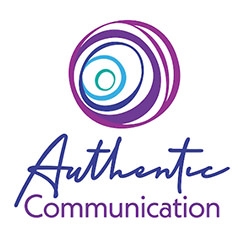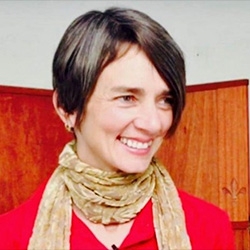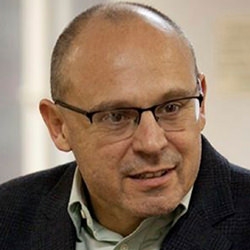
Search Results: diversity
-
Want to increase diversity, plus improve group dynamics and group functioning? There are things you can do to make NVC settings more welcoming to people of color. Learn more about how to use NVC; attend to impact; help the community understand and demonstrate more awareness; factor in historical context; engage; create a more inclusive climate; and more!
-
-
-
In treating everyone the same, we perpetuate inequities. If we want NVC consciousness to spread globally, it's crucial to acknowledge how various demographics are have varying capacities, and are differentially perceived, treated and impacted. Modifying our NVC teachings can increase equity and reduce the frequent judgement, disbelief, denial, insistence, non-resonance and re-marginalization that so many experience in NVC circles.
-
Miki explains how teachers and administrators can become more effective in relating to themselves, other faculty and staff, and they can contribute more to students' ability to feel connected and energized. Nonviolent Communication provides specific tools to empower ourselves and others to live more in line with our values and deeper needs.
-
Here are five practical ideas from Ceri, Jo, and Sarah for creating simple agreements with any group you are working with when conflict arises!
-
Join Itzel Hayward and Kathy Simon as they present two role-play scenarios showcasing diverse approaches to navigating difficult conversations. Throughout the demonstration, they underscore the significance of cultivating self-empathy and mindfulness to effectively engage in challenging dialogues. Specifically, they introduce a role-play scenario concerning affirmative action, aimed at illustrating the contrasting outcomes when utilizing or not utilizing nonviolent communication skills.
-
As human beings, our inherent goodness makes most of us believe in equality and yet sometimes our conviction in this same 'goodness' may make us blind to the reality of our own behavior. We are so convinced about the innocence of our intention that we seize to look at the impact of our behavior and thus our unconscious biases often go unexamined and unchallenged. Diversity, equity and inclusion work will only be of lip-service until we are willing to look at our own unconscious biases. Listen as Anisha Pandya encourages you to look at the possibility of how our self-awareness is so limited and one of the ways of expanding that awareness is by moving beyond our intention, looking at the impact of our behavior and remaining open to feedback.
-
- Uncover the expansive possibilities of Nonviolent Communication in growing compassion for a more empathic world
- Engage with 17 global trainers on 17+ unique topics
- Connect with an international audience from novices to experts
- Immerse yourself in a festival of learning, fun, and community
-
-
-
Ronnie Hausheer, an NVC facilitator who volunteers her time for OccupyVoice.info joins NVC Academy co-founder Mark Schultz in a discussion of her work sharing empathy, NVC training and mediation with members of the Occupy Movement.
-
NVC practice is based on several key assumptions and intentions. When we live based on these assumptions and intentions, self-connection and connection with others become increasingly possible and easy, helping us contribute to a world where everyone’s needs are attended to peacefully.
-
-
Empathy is a form of attunement. Empathy is giving your compassionate curiosity by guessing another’s feelings and needs. Consider how you live or relate to each of these 12 essential aspects of empathy. Some of them mention how we can offer empathy without abandoning ourselves, how empathy isn't always the best response, and how "Empathy can be offered when you disagree with another’s opinion, memory, or perspective."
-
In a workshop, a hesitant white neurodivergent man faced a triggering reaction from a Global Majority transgender man. Uncovering their backgrounds, the facilitator addressed family dynamics and exclusion. A repair exercise fostered empathy, challenging assumptions and emphasizing the importance of equitable facilitation for a richer group experience.
-
Duke Duchscherer shares that community well-being is created by the relationships that exist within the community. He discerns two vital components: bonding connections within similar groups and bridging connections between different groups. This interplay forms what is commonly termed as social capital, a cornerstone of community vitality.
Duke says that a community's strength lies in its ability to foster connections across diverse backgrounds. This notion resonates deeply with him, reinforcing his commitment to utilizing restorative circles. These circles, with their focus on building and restoring relationships, hold the key to enhancing collective resilience and unity. He believes they represent a proactive approach to sustaining community cohesion and preventing fragmentation in the face of adversity.
-
- Discover what is yours to do in response to our growing global crises
- Weave nonviolence more deeply into how you live and lead
- Receive ongoing support within and beyond the course in how to be effective and alive while doing what’s yours to do
- Increase your capacity to face and mourn current reality as a source of greater choice and energy
- Be a part of transforming the legacy of scarcity, separation, and powerlessness into a livable future
-
There are three things you can do to sort inner conflict and make doable, sustainable agreements with yourself. This capacity can build trust with yourself to follow through, and to develop diverse and creative solutions -- thereby increasing confidence and ease.














